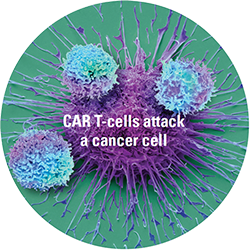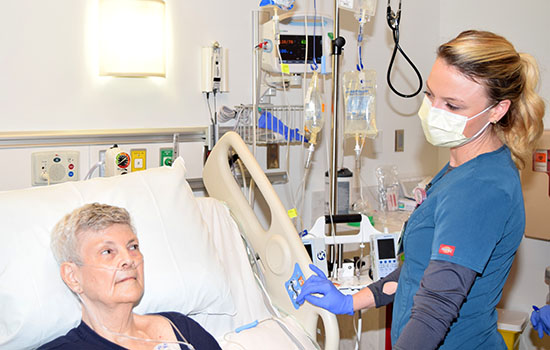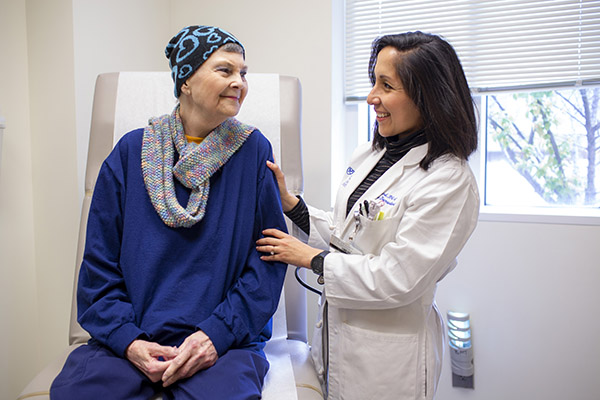The CAR T-Cell Therapy Experience

She has never been one to sit still. Even at age 73, Patricia Fuller was still cutting her own lawn ("with a hand mower, mind you, I don't have a riding lawn mower"), she's a cracker jack bowler, and she still shoots hoops, recalling her younger days as a basketball star. But after 10 years in remission, she was side-lined by a recurrence of non-Hodgkin large B cell lymphoma.

T cells are a type of white blood cell essential to our immune systems; the CAR stands for chimeric antigen receptor, which is a special receptor designed to bind to certain proteins on cancer cells. During treatment, a patient's white blood cells are removed from the body and genetically changed to recognize and kill cancerous cells. The re-engineered cells are then infused back into the patient.

Fuller got her re-engineered cells in August, 2018.
But by December, her doctor reported that the toxicities had resolved. "CAR T was Ms. Fuller's chance at a remission. It is remarkable that this new therapy is effective for both older and younger patients with lymphoma," said Edmund K. Waller, Winship immunotherapy expert.
Fuller is getting treatment for heart problems resulting from multiple rounds of chemotherapy she has received over the years, but she feels the CAR T-cell therapy has done its work. And she's ready to get out this summer and mow her lawn.

A check-up with advanced practice provider Cecilia Rosand.
As with all treatments, individual patient results may vary. It is important to discuss your cancer treatment options with your physician.





